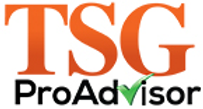Debunking Common Misconceptions About the Annual Filing Season Program (AFSP)
As a dedicated tax professional, your role extends far beyond mere number-crunching; you are a trusted consultant guiding your clients through the intricate landscape of taxes and finances. Your commitment to quality service propels you to continually enhance your knowledge, ensuring your clients receive top-notch assistance.
The Internal Revenue Service (IRS) recognizes this dedication and offers the Annual Filing Season Program (AFSP), a program that plays a pivotal role in maintaining your edge in the field.
Understanding the Annual Filing Season Program
The AFSP stands as a voluntary initiative by the IRS, seeking to acknowledge and boost the capabilities of non credentialed tax preparers. The program operates with the intention of offering continuous education and testing to ensure that tax preparers possess the requisite knowledge and skills to prepare accurate tax returns for their clientele.
For tax professionals without credentials such as enrolled agents, certified public accountants, or attorneys, the AFSP provides an exceptional chance to showcase their competence and dedication to their profession. Upon fulfilling the program’s requisites, participants receive an official record of completion, a valuable asset when promoting their services to potential clients.
It’s crucial to note that while the AFSP is a remarkable stride, it doesn’t replace the significance of credentials like those of enrolled agents or CPAs. Nevertheless, it stands as an ideal avenue for non credentialed tax preparers seeking to elevate their skills and demonstrate their proficiency.
Cracking the AFSP Requirements
Participation in the Annual Filing Season Program mandates a valid Preparer Tax Identification Number (PTIN) and adherence to the following criteria:
- Completion of 18 hours of continuing education (CE) from IRS-endorsed providers, including at least two hours dedicated to ethics and three hours covering updates on federal tax law.
- Successful passage of a 100-question multiple-choice test encompassing federal tax law and ethics.
- Commitment to uphold the IRS’s ethical and practice standards.
- Fulfillment of the program’s registration fee.
To sustain the AFSP completion status, tax preparers must undertake 15 CE hours annually, inclusive of a two-hour ethics course and a three-hour federal tax law update. This should also involve a six-credit-hour Annual Federal Tax Refresher (AFTR) course that delves into filing season intricacies and tax law updates. The AFTR course culminates with a knowledge-based comprehension test administered by the CE provider.
Furthermore, alongside the completion of pertinent CE courses, tax preparers are required to renew their PTIN for the forthcoming year.
Unraveling AFSP Myths
Several misconceptions hinder tax preparers from embracing the Annual Filing Season Program. Let’s unravel these myths:
Myth #1: The AFSP Grants Credentials
The AFSP doesn’t grant formal credentials; it’s a voluntary acknowledgment of competency for non credentialed tax preparers.
Myth #2: The AFSP Is Expensive
Compared to other tax preparation credentials, the AFSP is relatively affordable. The total cost, including CE courses and exam materials, typically amounts to less than $500.
Myth #3: The AFSP Is Insignificant
The challenges of meeting AFSP requirements are outweighed by its benefits. Participating tax preparers witness enhanced knowledge, demonstrate professional commitment, and potentially attract a larger client base.
Gains from Completing the AFSP
Engaging in the AFSP opens doors to numerous advantages:
Enhanced Competence and Knowledge
CE courses provided by the AFSP encompass federal tax law and ethics. Through these courses, tax preparers can augment their expertise and stay updated on the latest tax regulations.
Recognition and Promotion
Upon successful completion, tax preparers receive official records from both the IRS and Surgent CPE for each course. These documents serve as powerful tools for marketing your services. Furthermore, the IRS maintains a public database of AFSP-compliant tax preparers, offering free marketing exposure.
Potential Revenue Uplift
By demonstrating competence and commitment, tax preparers can attract more clients and subsequently boost their revenue. Additionally, the AFSP grants limited representation rights before the IRS, further elevating the value of your services.
Distinctiveness Amidst Competition
Passing the AFSP testifies to your capabilities, differentiating you from the vast number of tax preparers who forego the IRS training.
A Pathway to Career Advancement
For non credentialed tax professionals, the AFSP acts as an avenue for skill enhancement and a platform to showcase proficiency. Completion of the program can heighten recognition, attract clients, and potentially escalate revenue.
If you’re a tax preparer without credentials like enrolled agent or CPA status, the AFSP holds great promise. To delve further into the AFSP program, explore the offerings at the Surgent Income Tax School, where the comprehensive Surgent CPE catalog features the AFSP program.


